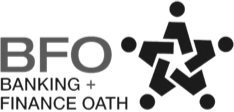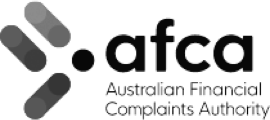As you are already aware, the Government Job Keeper Scheme has come to an end. So why not take advantage of this year's EOFY tax benefits. Below you will find our tips on ways you can benefit in these challenging times.
Three ways a business loan can benefit you this EOFY:
1) Instant Asset Tax Write-off Scheme
Using a business loan to take advantage of the Instant Asset Tax Write-off Scheme, which has been extended and benefit from the $150k (previously it was $30K) instant asset tax write-off* on any new equipment.
What is it?
The Federal Government has extended its Economic Stimulus Package for the Instant Asset Write-off Scheme to assist businesses with purchasing assets to 31 December 2020. Companies with an annual turnover of up to $500 million can immediately write-off for tax purposes assets worth up to $150,000.
Instant write-off means you may be able to claim an upfront tax deduction for the business portion of your eligible assets - resulting in cash sooner than expected.
How do you know if you're eligible for the scheme?
Suppose your business has an aggregated turnover of less than $500 million. In that case, you are eligible for the immediate tax write-off for the cost of your new or second-hand depreciating assets costing less than $150,000.
If your business's aggregated annual turnover is less than $5 billion, you are now able to write-off the total cost of new eligible depreciating assets within the specified timeframe. Small-to-medium businesses with an annual turnover of less than $50 million can also claim a deduction for eligible second-hand assets.
What things can you claim?
Depending on the size of your business, you can claim back on new or second-hand individual or multiple assets, so long as the cost of each individual purchase is less than the relevant threshold. Assets such as heavy machinery, business equipment or vehicles must be first held and first used or installed ready for use between 7 October 2020 to 30 June 2022.
2) Cover ATO Payments: Pay your ATO, BAS or Superannuation
ATO is tightening their post COVID-19 debt recovery processes. Here at Banjo, we are assisting those businesses experiencing short-term cash flow challenges and who may require settling their ATO debt.
This means the only way to fund cash loss is to either pump in more equity or to borrow funds. However, now that markets have re-opened, more businesses have been rebuilding. Businesses are currently arranging a settlement for the liabilities they owe to the ATO.
Did you know that businesses can borrow funds to pay all or a partial amount of these statutory liabilities to the ATO?
3) Build Inventory: Stock up your inventory for the new financial year
Instead of opting to use your residual cash flow towards the purchase of inventory, it may be beneficial to put this residual cash flow to use on high on return investment priorities. For instance, if you operate a manufacturing business and make a particular product with a high margin, you can put the funds towards this instead of using it to purchase inventory and opt for a business loan to purchase inventory, bringing those expenses forward to this financial year.*
If you'd like to chat with one of our friendly credit team members to learn more about how a business loan can benefit you this EOFY, please do not hesitate to call us on 1300 22 65 65. We'd be happy to help.
*We recommend you ask your accountant or financial advisor for taxation advice in relation to your specific circumstances


